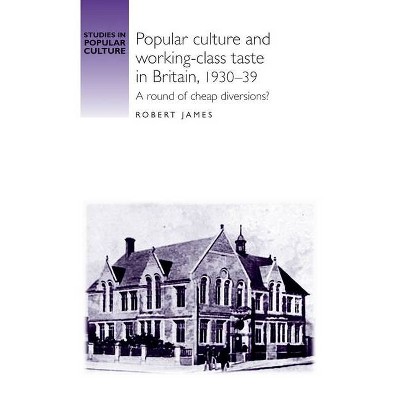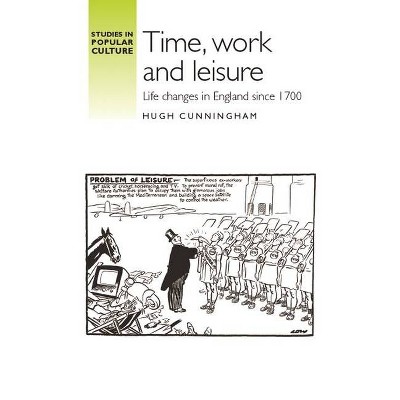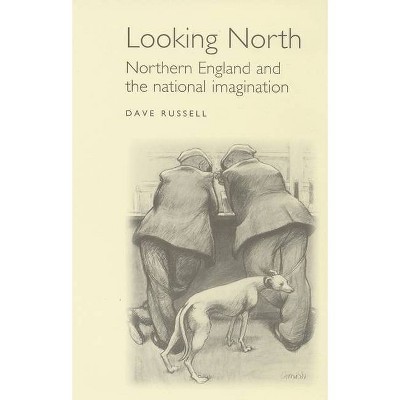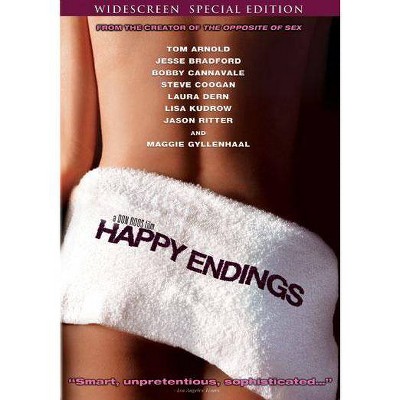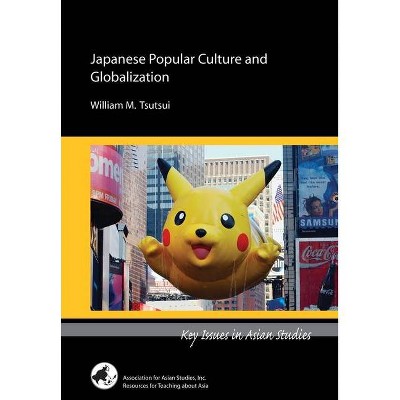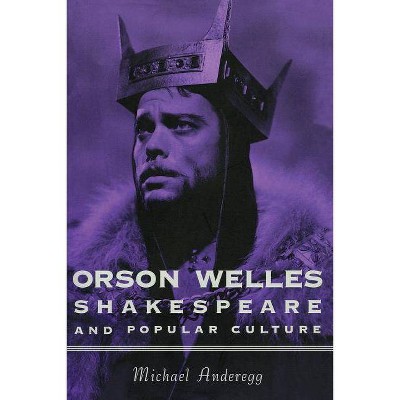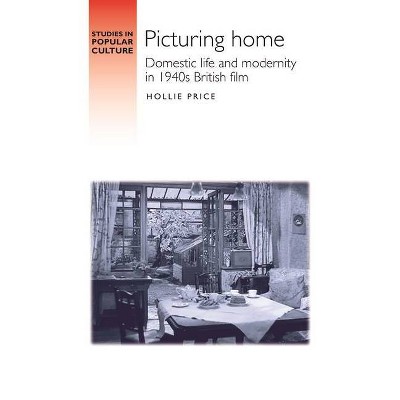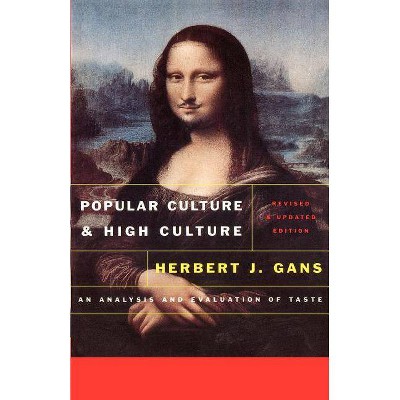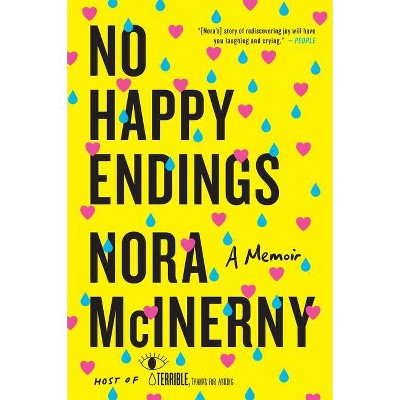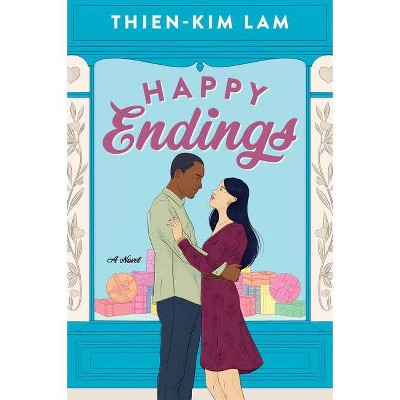Heroes and happy endings - (Studies in Popular Culture) by Christine Grandy (Paperback)
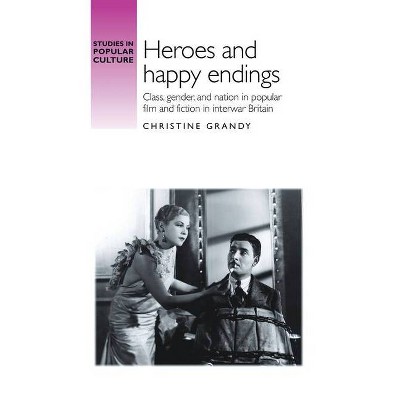
Similar Products
Products of same category from the store
AllProduct info
<p/><br></br><p><b> About the Book </b></p></br></br>Examination of the popular film and fiction consumed by Britons in the 1920s and 1930s<p/><br></br><p><b> Book Synopsis </b></p></br></br>This highly anticipated study examines the content of low and middle-brow film and fiction that was widely consumed by Britons in the turbulent decades between the wars. <br>Departing from a prevailing emphasis on mass culture as both escapist and largely democratic, Christine Grandy offers a fresh perspective by noting the enduring importance of class and gender divisions in narratives read and watched by the British working and middle classes. Heroes and happy endings examines an impressive number of popular films and novels, providing a comprehensive understanding of both the popular culture that arose in the 1920s and 1930s and the themes that persisted within it. Organised around the heroes, villains, and love-interests that populated these works, this book ends with an innovative look at the role that censorship played in shaping popular narratives in the period. Grandy demonstrates that contemporary concerns about ex-soldiers, profiteers, and working and voting women all found their way into the construction, consumption and censorship of masculine protagonists, scheming villains and swooning love-interests as they lived on the page and the screen. <br>An important and highly readable work for scholars and students interested in cultural and social history, as well as media and film studies, this book is sure to shift our understanding of the role of mass culture in the 1920s and 1930s.<br><p/><br></br><p><b> From the Back Cover </b></p></br></br>This highly anticipated study examines the content of low and middle-brow film and fiction that was widely consumed by Britons in the turbulent decades between the wars. Departing from a prevailing emphasis on mass culture as both escapist and largely democratic, Christine Grandy offers a fresh perspective by noting the enduring importance of class and gender divisions in narratives read and watched by the British working and middle classes. Heroes and happy endings examines an impressive number of popular films and novels, providing a comprehensive understanding of both the popular culture that arose in the 1920s and 1930s and the themes that persisted within it. Organised around the heroes, villains, and love-interests that populated these works, this book ends with an innovative look at the role that censorship played in shaping popular narratives in the period. Grandy demonstrates that contemporary concerns about ex-soldiers, profiteers, and working and voting women all found their way into the construction, consumption and censorship of masculine protagonists, scheming villains and swooning love-interests as they lived on the page and the screen. An important and highly readable work for scholars and students interested in cultural and social history, as well as media and film studies, this book is sure to shift our understanding of the role of mass culture in the 1920s and 1930s.<p/><br></br><p><b> Review Quotes </b></p></br></br><br><p>'Heroes and Happy Endings stands out for its ambition and clarity, and deserves a wide readership among scholars of interwar Britain. The book will be a valuable addition to reading lists by providing an accessible entry to theories of mass culture, which encourages students to engage with books and films not simply as discrete texts, but as components of a broader ideological apparatus.'</p><p>Max Jones, Department of History, University of Manchester, Contemporary British History</p><p><br></p><p>'The book is certainly fit for students and scholars interested in historical perspectives on the role of popular culture in general and in the interwar period in particular. It is of relevance to people in cultural studies, film studies, cultural histories and media studies but, really, it can be enjoyed by anyone interested in popular culture and/in the interwar period.'</p><p>Hilde Van Den Bulck, University of Antwerp, Historical Journal of Film, Radio and Television</p><p><br></p><p>'Heroes and Happy Endings makes a valuable contribution to the study of popular culture in the interwar period.'</p><p>Laura E. N. Mayhall, The Catholic University of America, Twentieth Century British History</p><p><br></p><p>'Through its evaluation of the period's most popular films and novels, Heroes and Happy Endings </em>provides a refreshing insight into British society's interwar leisure practices. By drawing on the insights of cultural, film, gender, literary, and media studies, as well as adopting a social and cultural history approach, Grandy has produced a detailed, thoroughly-researched and engagingly written analysis of the period. The book opens up the most popular films and novels of the interwar period to considerable scrutiny, while carefully situating them within their social and cultural contexts. It deserves to be read widely by students and scholars, particularly those interested in the social and cultural history of the interwar period. It is, however, a very accessible book and is highly recommended as an introductory text for anyone wanting to find out more about British society during this tumultuous period in the country's history.'</p><p>Robert James, University of Portsmouth, Journal of Social History</em> (Summer 2019)</p><br><p/><br></br><p><b> About the Author </b></p></br></br><br>Christine Grandy is a Lecturer in Modern British History at the University of Lincoln<br>
Price History
Price Archive shows prices from various stores, lets you see history and find the cheapest. There is no actual sale on the website. For all support, inquiry and suggestion messages communication@pricearchive.us
